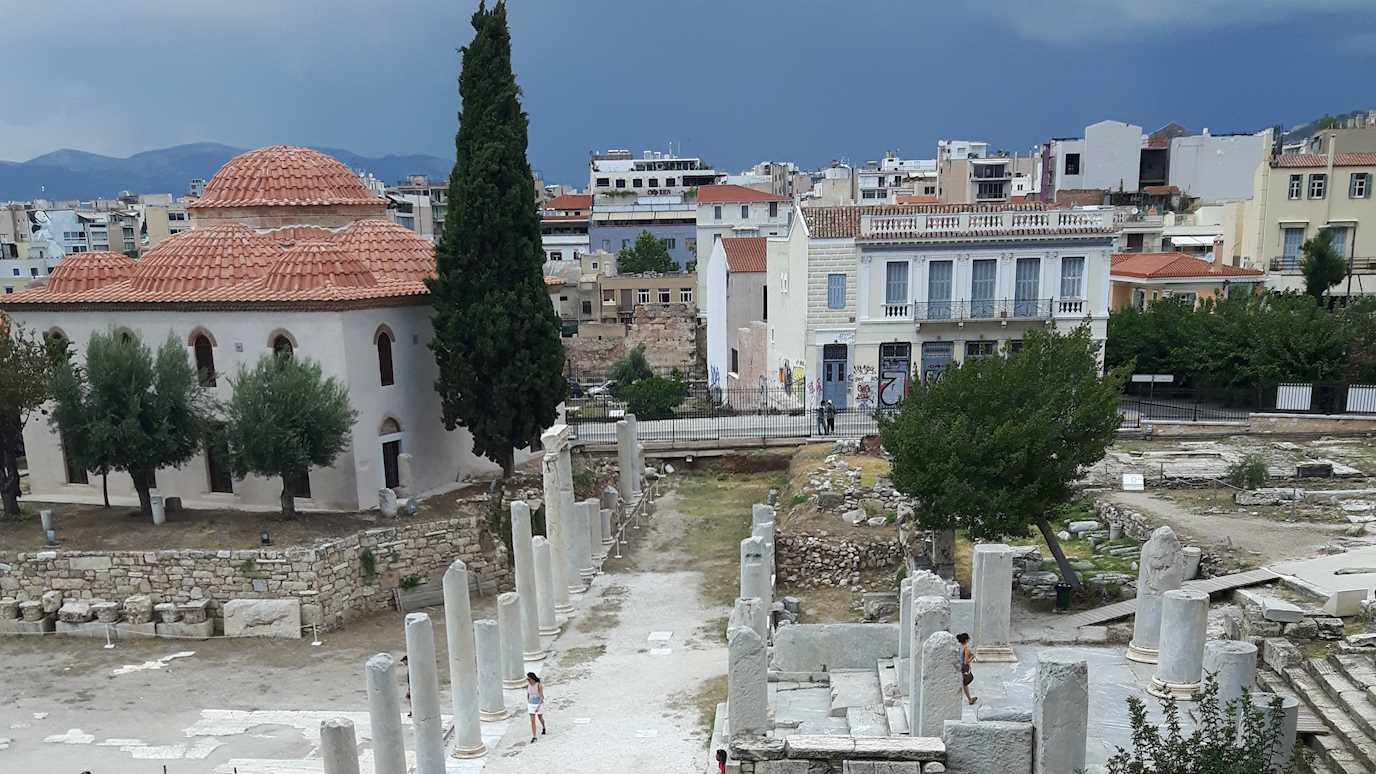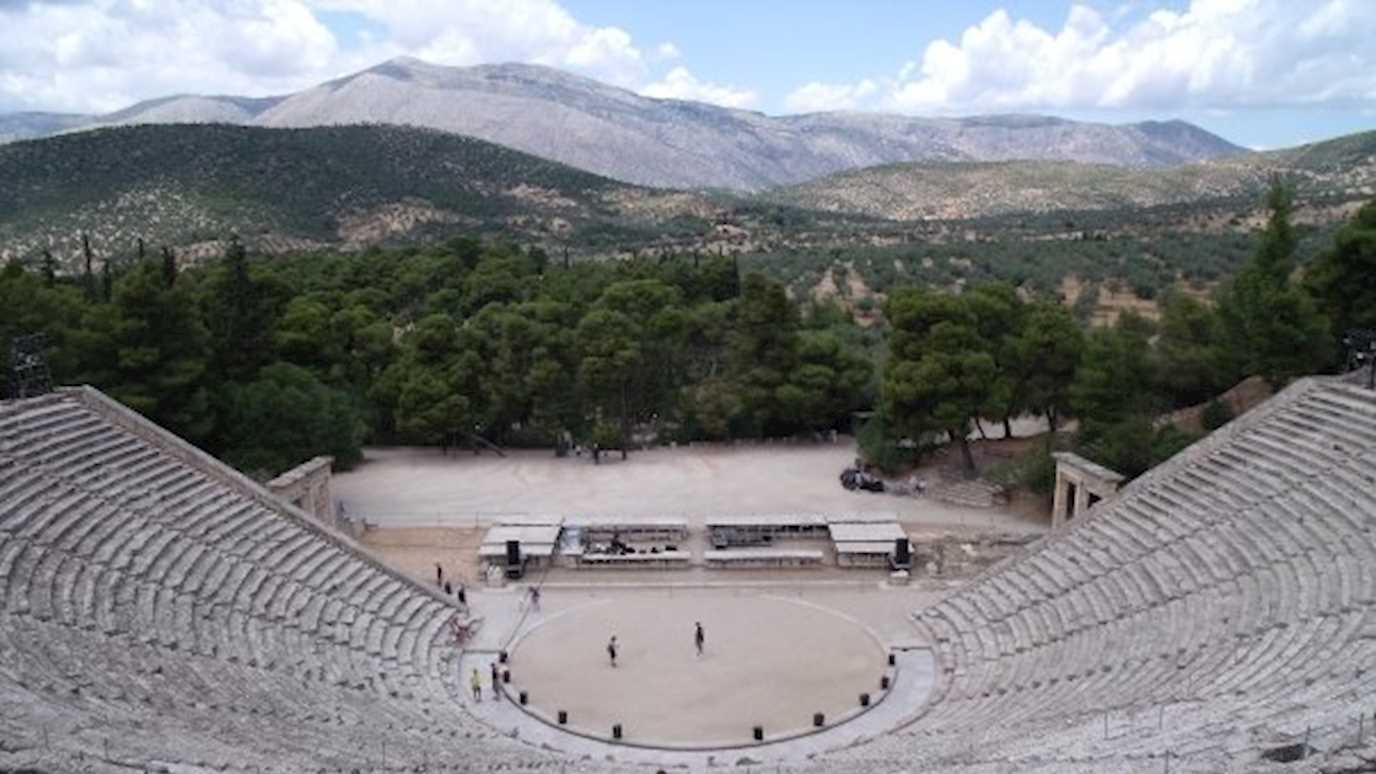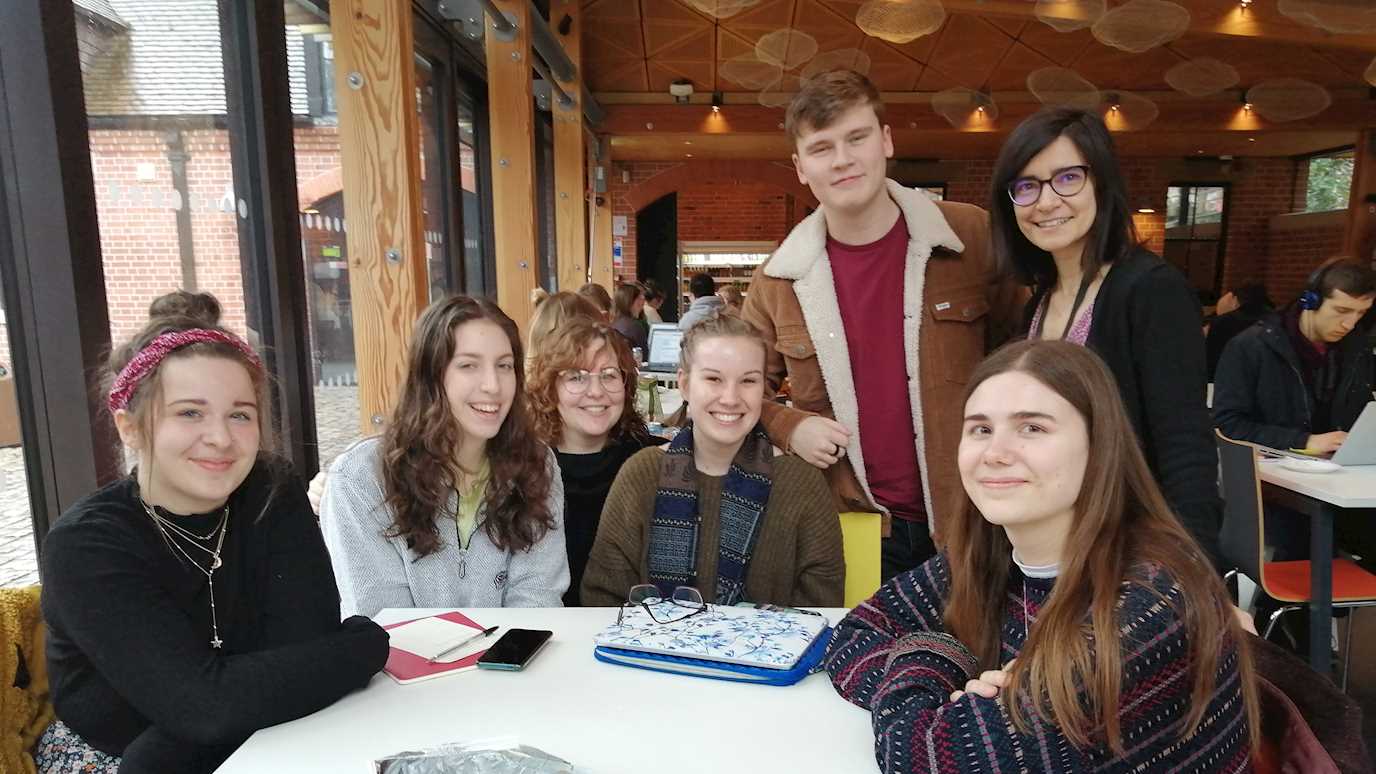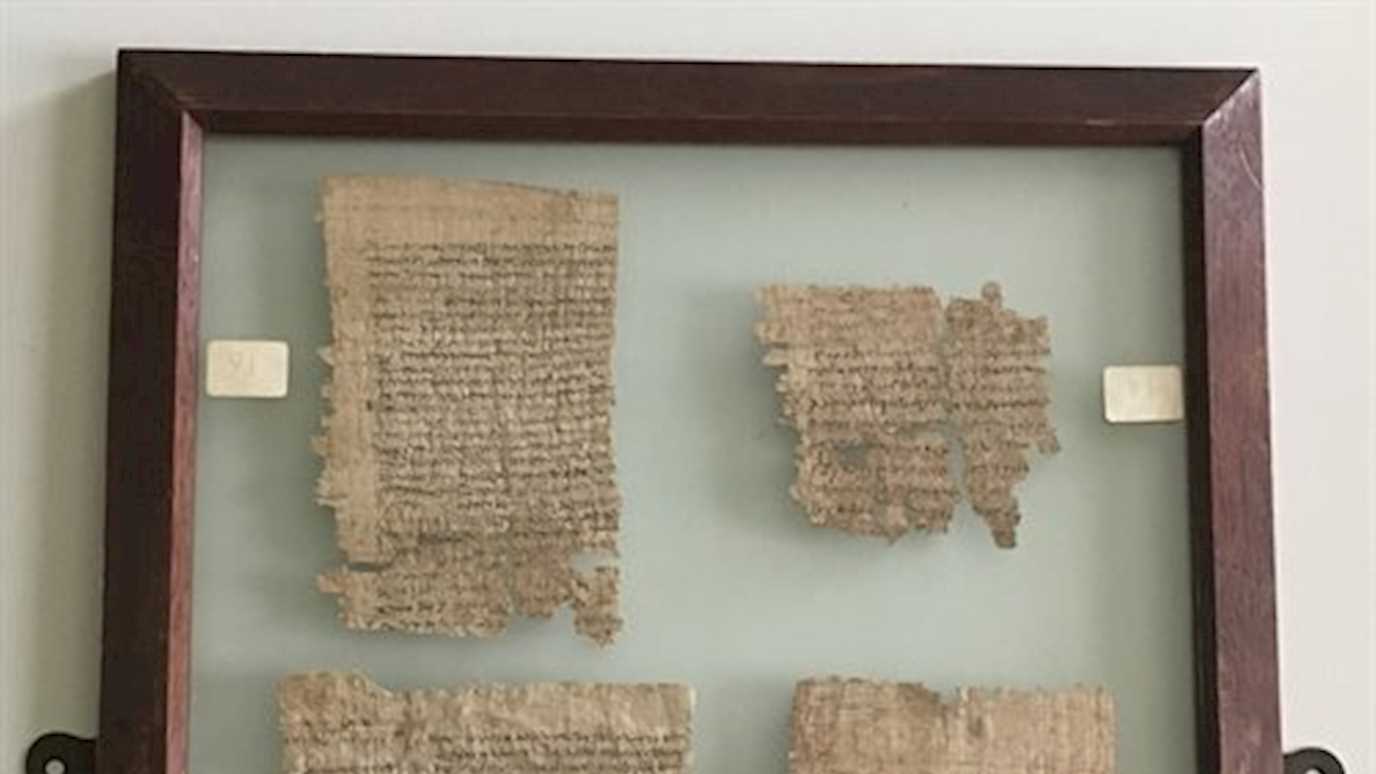The Classics Department is committed to a Classics for all policy. We are open to students of all social and ethnic backgrounds, gender identities, and educational pathways. We are committed to the support of an inclusion of our diverse student body and to a curriculum which represents diverse interests and perspectives. We seek to address directly issues of inclusion within our teaching and support particular groups which have been and are still too often disadvantaged in accessing the curriculum and achieving excellence. We further recognise that there is much to be done in ensuring social and intellectual inclusivity and are committed to working with our students to better achieve our goals
Widening Access
The Classics Department is committed to a Classics for all policy. Students of all backgrounds are welcomed and supported to succeed in the Classics Department at Royal Holloway. We are open to students of all social and ethnic backgrounds and educational pathways, provided applicants have achieved at a level sufficient to provide assurance that they can succeed in the particular degree programme. For many years, we have welcomed students who have not had the opportunity to study the Ancient world in their prior education.
As many as half of our students are in this category. Even for students who have had some prior experience of studying antiquity, that experience is varied and limited. Such experiences do not provide foundations in all our various fields of study (languages, literatures, archaeology, history). Consequently, our approach is to treat all incoming year one students as beginners and draw on the rich and varied prior experiences of our students. This ensures an inclusive and level playing field.
Our curriculum provides introductory level courses in year one, intermediate courses in year 2 and specialist courses in year 3. There is thus a structured ladder to develop students from all backgrounds towards excellence in attainment.
Our focus at each level is on the development of critical skills. This means that at each level, students should develop the necessary skills to progress to the next level even if they shift studies into a new curriculum area.
Our language courses are necessarily different. The majority of our students enter without having studied an ancient language. We offer beginners’ level courses in ancient Greek and Latin and a structured pathway so that those students who wish can progress to reading Greek and Latin literature in the original at intermediate level and to a greater range and extent by year 3. For those students who have experience of studying ancient languages, at whatever level, we will engage with your individual experience and acquisition to ensure that you have the opportunity to learn language at a level suited to you.
Other than the language-acquisition courses, all our other provision is taught using translations.
Our personal tutor system works to help students as individuals in their academic progression. We will use focus groups to seek to identify issues affecting students from backgrounds and families which have had limited or no access to higher education. We will support students in dealing with issues such as campus access, social inclusion, and academic resources and guidance.
BAME Students
We acknowledge that there are and have been particular issues for BAME students in studying Classical subjects. These issues relate to
- A history of the discipline which associates it with elitism and social exclusion.
- A history of the discipline which associates it with imperialism and colonialism.
- A sense of alienation from the subject derived from a perception of its domination by white authors and scholars.
- A historically disproportionate under-recruitment of students and staff from BAME communities.
We particularly welcome applicants from BAME backgrounds as part of our commitment to rectify some of these historical imbalances.
- In particular, we seek to develop links into schools with high BAME populations, which will allow us to raise aspirations and open opportunities for the study of the Classical world. We will look to develop and support ‘ambassadors’ from BAME communities to exemplify access routes into degree-level study.
- Our teaching and research ethos as laid out in our teaching and research pages on the website is fully conscious of the history of the discipline. It addresses critically issues of social exclusion and the use of the Classical and the archaeological as a mode to justify or normalise historical injustices, from slavery to imperialism, and including issues of social and gender inequalities.
- Our teaching and research sees cultural distance from the subject matter as positive, since it generates diverse critical perspective and consciousness of difference. Such difference relates to that which separates ancients from moderns and differential experiences of ancients by class, gender, ethnicity, etc., as well as diversities in perspectives due to our life experiences.
- We particularly value diversities in student and staff perspectives since this opens up new avenues and insights: since antiquity is a foreign country, where they do things differently, as moderns we are all equally strangers there. Our teaching staff is currently diverse on most measures with five (from 12) staff members from outside UK and one BAME. By gender, 50% of staff identify as male and 50% as female.
- Our curricula seek to decentre the elite experience in addressing issues of contemporary and global relevance. We embrace issues of social inequality and unfree labour, including slavery, imperial subjugation, displacement and immigrant experiences, ethnic minorities in larger ethnic units, gendered experiences, colonial engagements, cultural receptions to reinforce political and social hierarchies, and broad issues of identity and identity politics. These issues figure throughout our curricula, but are particularly evident in:
- Year One
- CL1534: Roman Literature of the Empire
- CL1550: Greek History and the City State
- CL1560: Key Themes in Roman History
- CL1570: Studying Classical Antiquity
- CL1580: Introduction to Greek Archaeology
- CL1581: Introduction to Roman Archaeology
- Year Two
- CL2193: Architecture of Ancient Italy and Sicily
- CL2194: Dig to Digital
- CL2350: Gender in Classical Antiquity
- CL2352: Greek History to 322 BC
- CL2353: Athenian Law and Social History
- CL2363: Augustus
- CL2365: The Rise of the Roman Empire: A Social and Economic History
- CL2463: Tacitus and the Making of the Roman Empire
- CL2488: Virgil’s Aeneid: the Empire in the Literary Imagination
- CL2835: Tacitus on Being Roman
- Year Three
- CL3284: City of Athens
- CL3353: Athenian Law and Social History
- CL3371: The Rise of the Roman Empire: A Social and Economic History
- CL3440: Contemporary Approaches to Latin Literature
- CL3463: Tacitus and the Making of Empire
- CL3500: The Archaeology of the Roman Near East
- CL3669: Augustus
- Year One
Dissertation topics and year 2 projects are co-created with students and may be designed to focus on related issues.
- As the proportion and number of BAME students in the Department increases, we undertake to:
- Work with such students, either through a focus group or individual consultation to discuss issues of inclusion, such as
- Curriculum design
- Educational experience, at School (through Black History Month) and Departmental levels
- Issues of progression
- Issues of inclusion
- Work with such students, either through a focus group or individual consultation to discuss issues of inclusion, such as
- The whole Department is committed to ensuring the best experience for BAME students. We identify a member of staff with special responsibility for ensuring that we meet our aims in this regard. This role is currently the responsibility of Dr Emilio Zucchetti.
The LGBTQ+ Community
The study of Classics has a long tradition of providing a congenial intellectual climate in which people can explore gendered identities which at various points in history have been regarded as non-normative. The differences between attitudes to sexuality and gender in the ancient world and those in modernity have provided and continue to provide a point of resistance to repressive attitudes and high-prestige role models. Consequently, the Classics have provided a vocabulary for describing LGBTQ+, with ‘Greek love’, Sapphic, and Lesbian, being the most obvious terms deployed. Many of the most prominent LGBTQ+ intellectuals and activists have drawn inspiration from the Classics. The Classics Department is proud to contribute to that intellectual tradition.
The Classics Department has a strong tradition of supporting and empowering the LGBTQ+ student and staff community, contributing workshops for example to the university's annual celebration of LGBTQ+ History Month. The Department works closely with university central services in providing pastoral support for students who are exploring identities. LGBTQ+ awareness and issues are integrated into much of the curriculum, from modules explicitly focusing on gender in classical antiquity and contemporary approaches to Greek and Latin literature, to language-acquisition modules which study ancient Greek and Latin texts that foreground issues of gender, sexuality and identity, such as Plato's Symposium or Latin love poetry. LGBTQ+ issues figure frequently in History modules that look at attitudes towards gender and sexuality.
Students are also warmly encouraged to explore the history of LGBTQ+ culture and to express their own identity through the co-creation with academic staff of second-year research projects and final-year dissertations. Recent dissertation topics have included, for example, treatments of Sappho in contemporary fiction; weaponising sexual deviance in Roman historiography; the educational context of Greek homosocial relations; sex and gender in Greek vase paintings; power dynamics in same-sex love poetry; and Nero and the reception of his sexuality.
Gender issues are a central theme in our research and public engagement activities, with work focusing on the representation of sexual desire and identity figuring significantly, particularly within Latin literature.
























